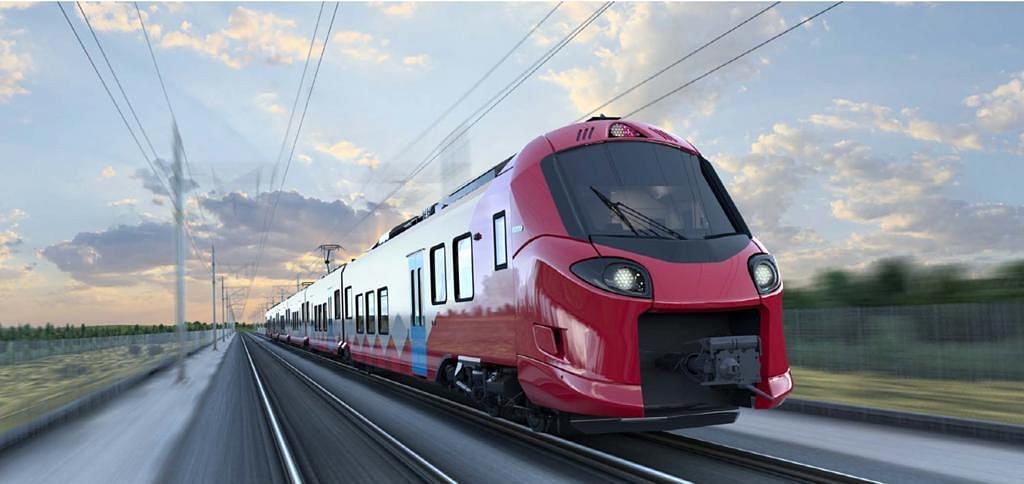Alstom’s electric trains to run on Romania’s railways by the end of 2023



Romanian railway operators expect to see the first fully electric trains from Alstom operating by the end of this year.
Stefan Roseanu, president of the Authority for Railway Reform, sat down with Euronews Romania to talk about the investments and reforms at Romanian Railways.
"The Authority has the first 37 electric trains that will enter into circulation this year. These are vehicles with 350 seats on each train. The trains resemble those at the subway, for those familiar with them. They have two driving positions at the two ends. Access is done through a series of doors on each wagon, and the trains are equipped to meet the needs of people with disabilities, including physical and visual accessibility,” Roseanu said.
The trains are up to industry standards, have modern toilets, and will also have a space meant for catering.
The fully electric trains are meant to travel long distances and will be assigned to the longest routes in Romania, like the Bucharest-Craiova-Timisoara-Arad one. The line in question is already electrified or is in the course of being electrified, allowing the new trains to reach the border between Romania and Hungary.
Stefan Roseanu said that the tests will begin in the summer and that the trains will travel at a maximum speed of 160 km/h. Not all railway sections allow the trains to travel at that speed, however. The Bucharest-Constanța line for example, or the railway lines towards Brașov until Predeal, will allow for high speeds because they are modernized. On other sections, trains will travel at lower speeds. In general, the main lines were built for 120 km/h, but damaged or old lines lead to restrictions on speed.
The head of the Authority for Railway Reform also said that a fully electric Alstrom train costs over EUR 9 mln and that the total investment amounts to EUR 350 mln.
"Maintenance costs for these trains will be added over time. These trains will not all be given solely to CFR Călători, but will be divided among all operators, including private companies in Romania. The fact that these contracts will no longer be directly given is a first in Romania. Any operator has a chance [to get the new trains]," added Stefan Roseanu.
Roughly 100 km of rehabilitated railway is also scheduled to be put into use this year. The railways will allow trains to travel at speeds of up to 160 km/h, according to representatives of Pro Infrastructura.
Romania's railways have become so damaged over time that the average speed of trains has constantly decreased. A passenger train currently travels at an average of 40-50 km/h.
(Photo source: Autoritatea pentru Reforma Feroviara on Facebook)